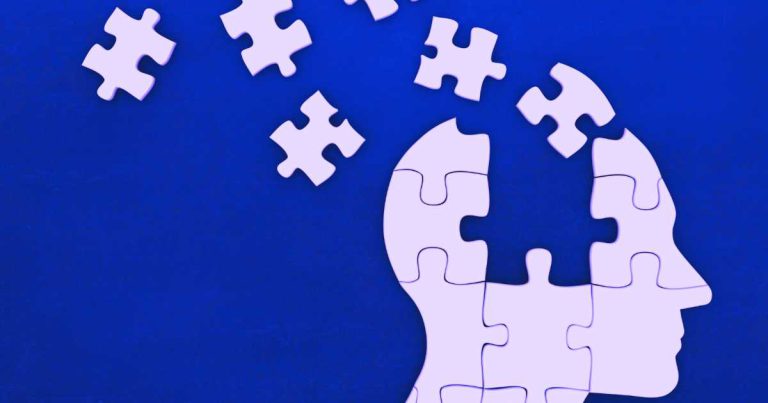Dreams are a window into your subconscious mind, revealing your deepest desires, fears, and emotions. Learning how to interpret your dreams and their symbolic language can gives you valuable insights into your waking life and personal growth.

While dream interpretation is highly personal, there are common themes, symbols, and techniques that can help you uncover the hidden meanings behind your dreams.
Introduction
The most effective way to interpret your dreams is to keep a dream journal, write down the details upon waking, and analyze the symbols and emotions that emerge. Look for patterns over time and consider how the dream themes relate to your waking life experiences, thoughts, and feelings.
Working with a trained therapist specializing in dream analysis can provide additional guidance in decoding the messages from your subconscious mind.
Common Dream Themes and Their Interpretations
While every dream is unique, there are some prevalent themes that many people experience. Recognizing these common dream scenarios can provide a starting point for your personal dream interpretation:
1. Falling Dreams
Dreaming of falling is one of the most common dream themes. This type of dream often indicates a lack of control or insecurity in some area of your life. You may feel overwhelmed by responsibilities, unsupported in relationships, or anxious about an upcoming change. Falling dreams can also represent a fear of failure or letting go of something important.
Dream Scenario | Possible Interpretation |
Falling from a high place | Feeling overwhelmed or out of control in life |
Falling into water | Emotional overwhelm or letting go of emotions |
Falling but landing safely | Facing fears and coming out unscathed |
2. Dreams of Being Chased
Dreams of being chased or pursued often stem from feelings of anxiety, insecurity, or a desire to escape a threatening situation in waking life. The pursuer in the dream may represent an aspect of yourself that you are trying to avoid, such as fear, anger, or shame. Alternatively, being chased can indicate a need to confront and overcome a challenge.
Dream Scenario | Possible Interpretation |
Being chased by an animal | Primal fears or instincts that need to be addressed |
Being chased by a person | Avoiding confrontation or running from responsibilities |
Being chased but escaping | Overcoming obstacles and finding solutions |
3. Teeth Falling Out Dreams
Dreaming of your teeth falling out, rotting, or crumbling is another prevalent theme. These dreams often symbolize feelings of powerlessness, insecurity, or a fear of aging and mortality. Teeth dreams may also indicate concerns about appearance, communication difficulties, or a sense of embarrassment in social situations.
Dream Scenario | Possible Interpretation |
Teeth falling out one by one | Gradual loss of power or control in life |
Teeth crumbling or rotting | Anxiety about aging or deterioration |
Trying to put teeth back in | Attempting to regain control or restore self-image |
6 Techniques for Interpreting Your Dreams
To gain a deeper understanding of your dreams, try incorporating these techniques into your dream interpretation practice:
- Keep a dream journal: Write down your dreams immediately upon waking, including as many details as possible. Note the setting, characters, emotions, and any prominent symbols or objects.
- Look for patterns: Review your dream journal regularly to identify recurring themes, symbols, or emotions. These patterns can provide valuable insights into your subconscious mind and the issues you may be grappling with in waking life.
- Consider your waking life: Reflect on the events, thoughts, and emotions you experienced in the days leading up to the dream. Often, dreams process and integrate information from your waking life, offering a new perspective or solution.
- Identify dream symbols: Take note of the objects, animals, or people that appear in your dreams. Each symbol may hold a personal meaning for you based on your life experiences and associations. For example, a snake might represent fear or transformation, while a house might symbolize your sense of self or family dynamics.
- Explore your emotions: Pay attention to the emotions you experience during the dream and upon waking. These emotions can provide clues to the underlying message of the dream and the areas of your life that need attention or healing.
- Work with a therapist: If you find yourself struggling to interpret your dreams or experiencing recurring nightmares, consider working with a therapist who specializes in dream analysis. A trained professional can help you uncover deeper insights and work through any unresolved issues that may be surfacing in your dreams.
The Role of Dreams in Personal Growth and Healing
Dreams not only provide a glimpse into your subconscious mind but also offer opportunities for personal growth, emotional healing, and problem-solving. By engaging with your dreams and exploring their meanings, you can:
- Gain self-awareness and insight into your thoughts, feelings, and behaviors
- Identify and work through unresolved emotional issues or traumas
- Access your creativity and intuition for problem-solving and decision-making
- Cultivate a deeper connection with your authentic self and life purpose
- Enhance your spiritual growth and understanding of the world around you
Incorporating dream work into your personal growth journey can be a powerful tool for self-discovery and transformation. As you become more attuned to the language of your dreams, you may find that the insights gained during sleep begin to positively influence your waking life choices and relationships.
Different Dream Interpretation Methods: Pros and Cons
There are several approaches to dream interpretation, each with its own strengths and limitations. Here are some of the most common methods and their pros and cons:
1. Freudian Dream Analysis
Sigmund Freud, the father of psychoanalysis, believed that dreams were a manifestation of repressed desires and unconscious conflicts.
Pros:
- Provides a framework for exploring the unconscious mind
- Helps identify and work through unresolved emotional issues
- Offers insights into the dreamer’s psychological state
Cons:
- Heavily relies on the analyst’s interpretation, which may be subjective
- Focuses primarily on sexual and aggressive themes, which may not apply to all dreams
- Lacks empirical evidence to support some of its claims
2. Jungian Dream Analysis
Carl Jung, a contemporary of Freud, viewed dreams as messages from the unconscious that could help individuals achieve psychological growth and self-awareness.
Pros:
- Emphasizes the dreamer’s personal associations and emotions
- Considers the collective unconscious and universal symbols
- Encourages the dreamer’s active participation in the interpretation process
Cons:
- Requires a deep understanding of Jungian psychology and symbolism
- May be less structured and more time-consuming than other methods
- Some concepts, such as archetypes, can be difficult to grasp
3. Gestalt Dream Analysis
Gestalt therapy, developed by Fritz Perls, focuses on the dreamer’s present experiences and emotions rather than the dream’s symbolic content.
Pros:
- Encourages the dreamer to take ownership of their dreams and emotions
- Helps identify and resolve internal conflicts
- Can be a powerful tool for self-discovery and personal growth
Cons:
- May overlook important symbolic meanings in dreams
- Requires the dreamer to be open and willing to explore their emotions
- Can be emotionally challenging for some individuals
4. Cognitive-Behavioral Dream Analysis
Cognitive-behavioral therapy (CBT) approaches dream interpretation as a way to identify and challenge dysfunctional thoughts and beliefs.
Pros:
- Focuses on the connection between dreams and waking life experiences
- Helps identify and modify negative thought patterns and behaviors
- Can be particularly helpful for addressing nightmares and sleep disturbances
Cons:
- May not delve as deeply into the unconscious mind as other methods
- Relies heavily on the dreamer’s self-reporting and willingness to engage in the process
- Some critics argue that it oversimplifies the complexity of dreams
When choosing a dream interpretation method, consider your personal preferences, goals, and the level of guidance you require. It may be helpful to explore different approaches and find the one that resonates most with you. Remember that dream interpretation is a highly personal process, and what works for one person may not work for another.
Additional Dream Scenarios and Their Interpretations
1. Flying Dreams
Dreams of flying often represent a sense of freedom, liberation, and transcendence. These dreams may indicate a desire to rise above challenges or limitations in waking life, or a need for a new perspective on a situation. Flying dreams can also symbolize spiritual growth and a connection to higher consciousness.
Dream Scenario | Possible Interpretation |
Flying effortlessly | Feeling empowered and in control of life |
Flying with difficulty | Struggling to overcome obstacles or limitations |
Flying in a group | Collaboration and support from others |
2. Naked Dreams
Dreaming of being naked, partially clothed, or exposed in public often reflects feelings of vulnerability, shame, or fear of being judged by others. These dreams may indicate a need to embrace authenticity and self-acceptance, or a fear of revealing one’s true self in waking life.
Dream Scenario | Possible Interpretation |
Being naked in a crowd | Fear of being exposed or judged by others |
Being partially clothed | Feeling unprepared or caught off guard |
Being comfortable while naked | Embracing vulnerability and authenticity |
3. Exam Dreams
Dreams of taking an exam or test often symbolize feelings of anxiety, self-doubt, or a fear of failure in waking life. These dreams may reflect a sense of being unprepared or overwhelmed by responsibilities or expectations. Alternatively, exam dreams can indicate a need to evaluate one’s progress or readiness for a new challenge.
Dream Scenario | Possible Interpretation |
Failing an exam | Fear of not meeting expectations or standards |
Arriving late or unprepared for a test | Feeling overwhelmed or unprepared for a challenge |
Passing an exam with ease | Confidence in one’s abilities and readiness for growth |
Conclusion
Interpreting your dreams is a highly personal and intuitive process that requires patience, self-reflection, and an open mind. By keeping a dream journal, exploring common dream themes, and utilizing various interpretation techniques, you can begin to uncover the hidden meanings and messages within your subconscious mind.
Remember that dreams are not always literal and may use symbolism and metaphor to convey their messages. Trust your intuition and allow yourself to explore the emotions and associations that arise as you work with your dreams.
If you find yourself struggling with recurring nightmares or disturbing dream content, don’t hesitate to seek the guidance of a qualified therapist who can help you navigate the deeper psychological issues that may be surfacing.
Ultimately, learning how to interpret your dreams can be a transformative and enlightening experience, offering valuable insights into your inner world and guiding you toward greater self-awareness, emotional healing, and personal growth.
Frequently Asked Questions
1. Are all dreams meaningful, or are some just random?
While some dreams may seem random or nonsensical, most dreams contain meaningful messages from your subconscious mind. Even the most bizarre dreams can hold symbolic significance when examined through the lens of your personal life experiences and emotions.
2. Can dreams predict the future?
While some people believe that dreams can be prophetic or precognitive, there is no scientific evidence to support this claim. However, dreams may help you process information and emotions, leading to insights or intuitive hunches that can guide your waking life decisions.
3. What do recurring dreams mean?
Recurring dreams often indicate unresolved issues, ongoing stressors, or important themes in your life that require attention. These dreams may persist until you address the underlying issue or learn the necessary lesson.
4. How can I improve my dream recall?
To improve your dream recall, keep a dream journal next to your bed and write down your dreams immediately upon waking. Make this a regular practice, and you will likely find that your dream recall improves over time. You can also set an intention to remember your dreams before going to sleep.
5. Should I be concerned about nightmares?
Occasional nightmares are normal and can be a way for your subconscious mind to process fears, traumas, or stressful experiences. However, if you experience frequent, distressing nightmares that interfere with your sleep quality or mental well-being, it’s essential to seek the guidance of a mental health professional.
6. Can certain foods or medications influence dreams?
Yes, certain foods, medications, and substances can affect the content and vividness of your dreams. For example, spicy or heavy foods before bed may lead to more intense or disturbing dreams, while some medications, such as antidepressants or sleep aids, can alter dream content or recall.
7. How can I use my dreams for problem-solving?
To use your dreams for problem-solving, set an intention before sleep to receive guidance or insight on a specific issue. Upon waking, write down your dreams and look for symbols, themes, or emotions that relate to the problem at hand. Allow your intuition to guide you toward potential solutions or new perspectives.
8. Can I control my dreams?
Some people can learn to control their dreams through a practice called lucid dreaming. In a lucid dream, you become aware that you are dreaming and can often influence the dream content or narrative. Techniques such as reality checks, mnemonic induction, and dream journaling can help cultivate lucid dreaming skills.






